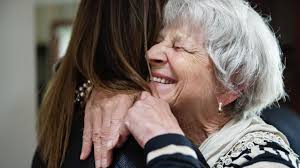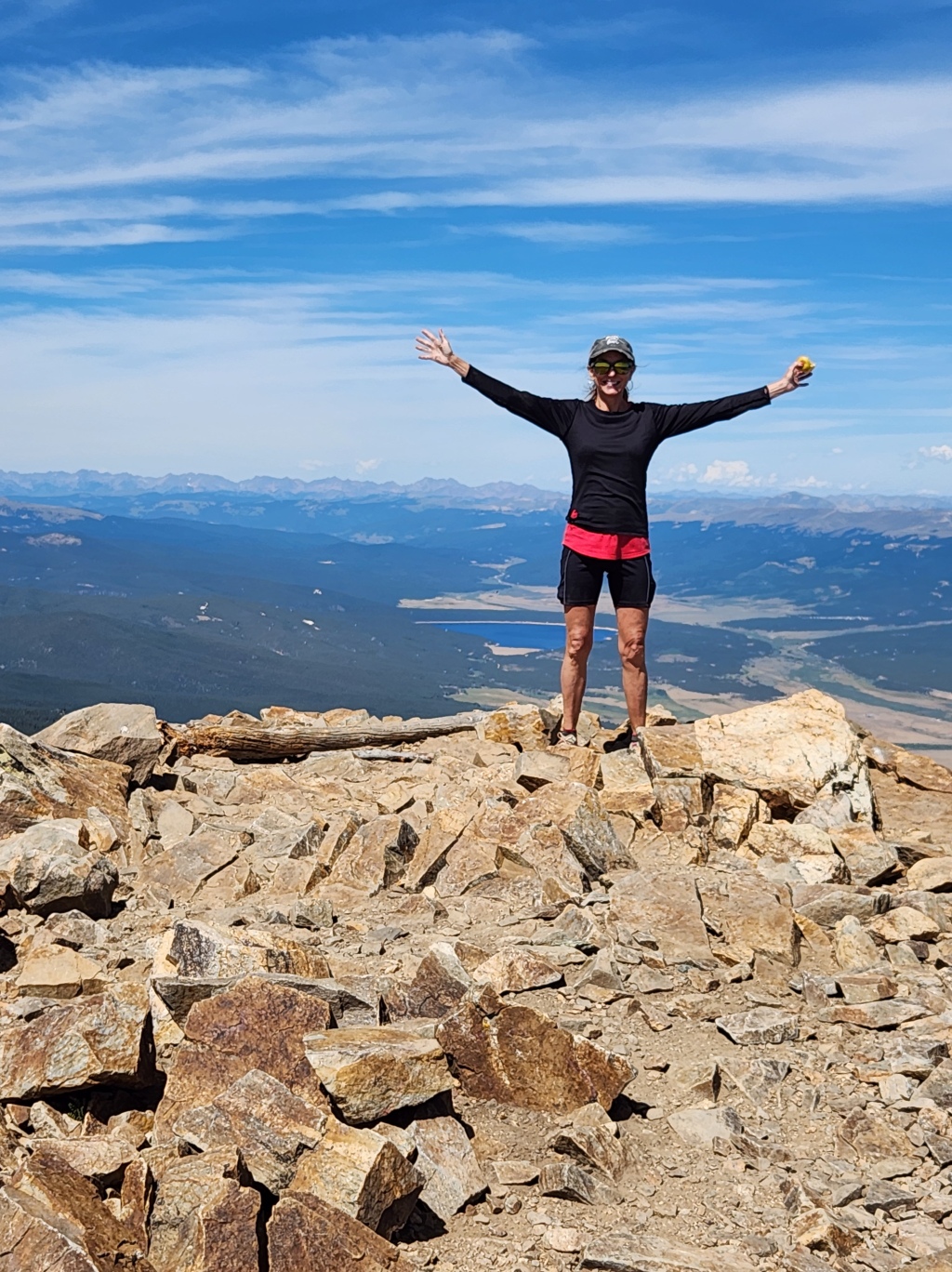Part 1 of a Series

I haven’t written a blog in a while. I’ve been in a dark place, which is a bit disappointing to me on one level, because I thought I was past the downward spirals. On the other hand, it proves a point that I’ve made before, and now believe more than ever: “Whatever you focus on expands.” My last 10 blog posts have been about the characteristics, traits and behaviors of narcissists, the narcissistic cycle, the effect they have on others, and a little bit about attachment styles. I even shared my own “Attachment Style” story, and in order to do so, I had to dig up some unpleasant memories.
In addition, I’m about a year and a half in to a new relationship which has stirred up all sorts of anxiety and insecurities that I should have expected but instead caught me off guard. I was in such a great place as an individual, I thought I was ready. i guess I was as ready as I could have been, but I don’t know if we’re ever truly “ready,” we just have to do it. I’ve realized that dating is in its own category within the healing department, and if it’s an avenue we want to take, we have to plow through the “yuck,” discomfort, trust issues, anxiety, etc. just like we first have to do for ourselves as an individual. I would emphatically advise against trying to date until you feel healthy and whole as a single person for several reasons. For one, you’ll have the confidence that since you’ve gone successfully through the healing process as an individual, you can do the same in a relationship setting. I’m still in the process relationship-wise. (I will blog about this later. Dating after narcissistic abuse, especially when one of your parents was a narcissist, is harder than I thought, and the reason why so many survivors are single).
The point is, I was, and have been, so focused on negative stuff, it truly brought me down. My son noticed and brought it to my attention, echoing back words I’d spoken to him not too long ago. Funny how that happens. “Mom, maybe you’re spending so much time thinking about past memories and what you’re going to blog about, that you’re not living in the present.” Bingo! He was right. I needed a break.
Just to reiterate, I’m a blogger/teacher/sharer of knowledge. I am not a doctor or a therapist. However I DO have experience. A lot of it. And I’ve spent thousands of hours researching everything” narcissism” including How people become narcissists? Do they know they’re narcissistic? How do they think and act, feel and process? How do they impact others? The million dollar question: Can they change? And, What are the short-term and long-term effects on those closest to them? Etc. to the 100th power.
QUESTIONS
Why have I done all this research? Because after my divorce, which was the cherry on top of a very long series of unfortunate events, I wanted some answers. Learning and gaining knowledge are my “go-to’s” when I’m anxious and confused – it’s a compulsion. And now that I have answers, I want to share what I’ve learned with you, to hopefully help you understand better what you’re going through, why, and how to move forward.
ANSWERS
The first question I typed into the search bar the day after my ex left was, “What kind of person is extremely self-centered, yet plays the martyr?” As you may have guessed, I searched that because it generally describes my ex. He had many many other strange, unexplained behaviors, but I started with that question because it was the biggest, and …. Try it yourself! See what comes up. Yep! Covert Narcissist. I’d heard the word narcissist before, and believed it referred to people who were really into themselves, but didn’t fully understand what it meant, and I’d certainly never heard of a “Covert” narcissist.. My first thought was, “He’s odd, but I don’t think he’s a narcissist.” That’s when I began researching. I had to know what a narcissist, specifically a covert narcissist, was.
In the process I was shocked to realize that not only was my ex a CN, all of the descriptions fit my mother to a tee! She was also “different” and “quirky,” but I could never quite pinpoint what was going on with her. It was like scales falling from my eyes! How had I not noticed how much alike they were, even down to some very specific, detailed behaviors?! I had married my mother.
I also wanted to know why I’d been so blind, and why I kept attracting toxic partners?! Thankfully I had some pretty healthy relationships with a few friends and family members throughout my life to balance out the crazies, or I probably wouldn’t have made it – no exaggeration. If you’re like me, you know what I mean.

So….If you have low self esteem, a poor self-image, if you’re a pleaser, a perfectionist, or a protector, if you’re co-dependent; if you have trouble regulating your emotions, AND if you wonder if you’re alone in your feelings and/or if you’re going insane….. I’m here to tell you, you’re not, and… you’re not. I can also tell you that there is hope. Not only can you undo the damage that’s been done, you can begin to create the life you’ve always wanted. Sounds hokey, but it’s true. It’s happened for me, and it can happen for you. I’m still a work in progress, i.e. the dating thing, but as an individual, I’ve never felt better in my entire life.
IN A NUTSHELL: LOVE AND FORGIVENESS ARE THE KEY
My intention for this blog was to simply make a list of “Strategies for Healing,” and then briefly explain each one, but the list became so long I had to change my game plan. I included the list at the and, but decided to start with the two key elements (the hardest ones as well, I might add). In a later blog post, as part of this series, I’ll go more in depth with the other suggestions listed below.
LOVE
Louise Hay says all or most of our issues are due to of lack of self love. In order to heal, we have to love ourselves. Read that again slowly. We have to love ourselves. If you’re wondering if you love yourself, ask yourself this. What kind of things do you say to yourself when you do something absent mindedly? When you do something you consider to be bad? When you do something you consider to be good? How do you feel about yourself when you make a mistake? When you don’t win? How do you treat yourself when your sad? When you’re sick? Answering these simple questions will tell you a lot about how you feel towards yourself.

Louise Hay wrote a whole book about loving yourself. It’s called, “You Can Heal Your Life.” It’s a really good book, and I highly recommend it. I resonate with it because Louise went through hell during her lifetime, yet she used those experiences as fuel for helping others.
“We can blame our parents or primary caretakers, but remember this,” Louise says, “Something had to happen to make them turn out the way they did.” And that something probably wasn’t good. ” (paraphrased).
She continues, “People cannot give what they do not possess.” Parents are supposed to love us unconditionally, nurture and support us, be there for us, right? But not all parents do, not all parents can, and here’s the tough one; not all parents choose to. Ouch. As kids and young adults our perceptions of parents and their peers is that they’re adults – they should know better. We want to blame them, but the fact is, they’re just people, trying to do the best they can. Age and time mean nothing when you haven’t matured emotionally. Some people’s “best” may be better or worse than that of others.
People cannot give what they do not possess.
Louise Hay
FORGIVENESS
One of the hardest things we may ever choose to do is forgive. Notice I said, “choose.” Forgiveness is a choice. No one can make you do it if you don’t want to. It’s a personal decision. That goes for forgiving YOURSELF as well as forgiving others. When we’ve been fooled and manipulated, deceived, and gaslit; when our trust has been broken by those closest to us – the people we’re supposed to be able to trust above all others – it’s easy to feel ashamed and embarrassed. It’s common to ask, “Has that person always been this way?” “Why didn’t I see this?” “How could I let this happen?”

There are a many reasons. One is that you, most likely, are a highly sensitive person, kind and trusting. On one hand you’re the kind of person everyone wants as a friend. Unfortunately, this personality type is also the most easily taken advantage of. Sick, right?! It’s easy for our narcissistic parent(s), friend, family member, co-worker to capitalize on that. They groom us and turn us into the little robots they want us to be.
In romantic relationships, narcissists TARGET people like us. They sweep us off our feet, get to know us very quickly, i.e. our strengths, and more importantly (to them), our weaknesses and insecurities, and store them away to use against us later. They are MASTER manipulators. You are not stupid or blind. You’re not wrong in believing you should be able to trust your parents or spouse, boss, or friend. However, you were naïve, which in and of itself is not a bad thing, and is inconsequential unless you’re with someone with ill intent. At some point, you have to become aware, knowledgeable, armed and, for the future, proactive. It’s so sad. So sad. But true. So let yourself off the hook, and know you are NOT alone.
In regards to forgiving our abusers, I absolutely do not mean giving them a hall pass, or saying, “Let’s pretend this never happened,” or “They didn’t know better.” Even if they didn’t know better, which is doubtful, what they did was NOT ok. You did NOT deserve to be treated this way! What I mean by forgiveness is to let it go. Her me out. You may always remember what happened, but try to let go of the emotion that’s paired with the memories. This may require therapy – we’re not equipped to know how to do this on our own.
Besides letting go of the emotional response to our memories of past occurrences, my interpretation of forgiveness also means seeking to understand. Please know that I understand that in many cases this is easier said than done. *In my case I have to believe there was a reason my mom, my abuser, my ex, turned out the way they did, and that their outward actions were a reflection of what was gong on inside – which was not good. I have to believe it wasn’t personal – I just happened to be the existing recipient of their bad behavior. It had (almost) nothing to do with me, and (almost) everything to do with them. I say “almost” on my part because as stated earlier, there were things that I was inadvertently putting out there like the “kick me” sign we used to tape onto each other’s backs in middle school. And I say “almost” on their part because, also stated earlier, there was something in their life that made them into the person they became.
Did you know that one definition of the word forgive is to pardon? For example, if someone owes you money, and you “pardon” them, it means you tell them they don’t have to pay you back! Perhaps we can think of forgiveness as making an agreement with ourselves that they don’t have to keep paying for what they did. When you think about it – they don’t even realize (or care) that they’re constantly “paying” in your mind. They’re completely oblivious! That can be an infuriating thought, but I believe karma is real. Also, those people, when you think about it, are almost always miserable and beyond help. They almost surely will never reach your level of health, happiness and peace. On the flip side, tell yourself that you don’t have to keep feeling bitterness towards them every time you see them or think of them. You’re the one feeling the stomach ache, not them. So let it go.

When we blame people it has some negative effects:
1.. We harbor negative feelings that only hurt us! The people we blame usually have no idea the turmoil they’re causing us. While they’re oblivious, we’re allowing them to hurt us even more.
2. We don’t take any responsibility for ourselves, our feelings, our outcomes. In other words, it disempowers us. Read that again. It takes our power away – we’re GIVING it away – to them.
REMEMBER: KNOWLEDGE IS POWER!
Rather than using words like “fault” and “blame” (emotionally charged words), it might be helpful in our healing to use more science based words, such as “cause” and “effect.” For example, rather than saying, “It’s my mom’s fault that I’m such a perfectionist,” we could say, “Because of the way mom responded to my achievements, it caused me to become a perfectionistic. (Don’t call yourself a perfectionist – don’t claim that identity! You might have perfectionistic tendencies, but that can be changed).
Blame is emotion based – we don’t take responsibility for our actions – we feel negative emotion – we give our power away
Reason is science based – we take responsibility – we make our own decisions – we become empowered – we feel positive emotions
Disclaimer: We – this includes me – have to understand and accept that there may be certain actions that will never make sense. (Again, easier said than done). Have you ever heard the term “rumination?” It means we have certain thoughts that play over and over again in our minds like a video on “repeat.” Does this sound familiar? Our brains naturally try to figure out a logical explanation, an answer, a resolution to something that’s troubling us. Usually it can, and that’s the end of that. However, some things can never be explained, and therefore we ruminate. There is no logical reason for the actions we’ve experienced, or at least we’ll never know in this lifetime what they are.. These are the tough ones. We have to let them go as well, for our own benefit. File them away in the “this will never make sense, so I might as well not spend any more time and effort trying to understand it” file, and give yourself permission to just LET. IT. GO. We do have control over our minds and what we think – we just have to practice doing it.
SELF LOVE & RECOVERY;
LET’S GET TO THE GOOD STUFF!!
So how do we come to love ourselves from a place of self-loathing so that we can fully heal?. That’s a huge, impossible jump! The answer is…..it’s a process. We get there incrementally. The amount of time it takes varies from person to person. My intention, as I said earlier, was to make a list, and write a little explanation or synopsis for each bullet point. I didn’t realize the list would be this long, though. So, as promised, I’ll do that in a separate article.
For now, here’s a numbered list so you can do your own research if you want to. The good news is that many of these steps can be done at once – kind of like when you’re getting ready for Thanksgiving dinner at your house. You throw in a load of laundry, put the turkey and sweet potato casserole in the oven, put the turnips, potatoes and rutabagas on the stove, and start sweeping the floor. Lots of things are getting done at once. Therefore, these are not in any particular order.

STEPS TO HEALING FROM NARCISSISTIC ABUSE AND TRAUMA
- Discern whether or not the person in question is truly a narcissist. I have a blog on identifying them here if it helps: https://thenarcnarc.com/2022/09/04/is-there-a-narcissist-in-my-life/
- Recognize that what you experienced was abuse.
- Recognize that what you’ve experienced was traumatic (if you believe it was) Certain personality types might be affected differently, but if you’re a highly sensitive person, there’s a good chance you’ve been traumatized. Trust your instincts.
- Understand how that abuse affected you.
- Take a minute to mourn the “normal” happy part of your life that you lost due to being manipulated, lied to and treated like a tool. Mourn the loss of never really having a mom, or a dad, etc. “Mourn” is not too strong of a word. You have experienced a traumatic loss.
- Understand that these people will most likely NEVER change.
- Know that the best approach, if you can do it, is to go no-contact, with the narcissist.
- Understand that most narcissistic people aren’t diagnosed because they don’t think there’s a problem.
- Understand that something happened in these people’s lives to make them turn into narcissists, and that they are generally unhappy, miserable people who probably wouldn’t have chosen this path.
- Eventually it will be helpful to forgive this person/these people for the benefit of your healing. When I say that I DO NOT MEAN to say their behavior is/was ok. It absolutely 100% was/is not! It means, read #9 again.
- Start CHOOSING who you want to be around. (People that are energy givers, not energy vampires). If you have to be around them, do it on your terms. Set parameters! BOUNDRIES!!
- If you have trouble with #11, you might have trouble making decisions in general. DON’T JUDGE YOURSELF!! For a long time you weren’t ALLOWED to make decisions (at least based on your own preferences). Am I right? I’m guessing the way you made decisions was to think, “What would _____ like?” or “______ wouldn’t like this, so I’ll choose this.” “This wouldn’t make ________ upset.”
- If you DO have trouble making choices for yourself, start small. It may seem silly, but you don’t have to tell anyone. This is between you and you. CHOOSE what you’d like to eat for breakfast based on what YOU like & FEEL like eating. Choose what you want to wear based on what you like & want to wear, etc. Doing this tells your brain that you are important enough to have what you want. It’s an important first step in honoring, loving and respecting yourself.
- Online counselors and podcasts, books: Dr. Les Carter, Dr. Ramani, Dr. Kim Sage, Bob Proctor, Wayne Dyer, Joe Dispenza, Gabriel Bernstein, Louise Hay, Abraham Hicks, Oprah Super Soul Conversations, List books: You Are a Badass, The Four Agreements, The Power of Now, You Can Heal Your Life, Happy Days, etc
- Start paying attention to your emotions. A lot of us have learned to suppress our emotions for self preservation, but in doing so, we’ve cut off our internal (emotional) guidance system.
- Vibration – to be discussed later
- Thankful journal – totally changed my perspective on life. Will remind you of everything GOOD in your life, and lift your vibration
- Journaling in general
- Self fulfilling prophecies – change the way you look at things, and the thigs you look at change
- Positive affirmations
- Visualizing
- Counseling: Tapping, EMDR, ART, IFS, talk, Desensitization, hypnotherapy (past life regression, reiki – I want to learn more about this
- Say yes to things you’re scared of, but secretly want to do
- Meditation- will describe different kinds later
- Belief in higher power – it helps! Question your belief system. Why do you believe what you do? Do YOU really believe it?
- Self care – whatever that means to you – bath music candles nails hair that from grocery tie alone tule with friends movie beach trip hike in nature
- Eliminate news & other things that make you feel bad
- Grounding
- What do you KNOW is true (ex of list on fridge) – more on this later
- Peeling back the onion exercise – fear, anger….all stems from pain
- Yoga
- ***KNOWLEDGE When you understand why you are the way you are or why you’re reacting the way you are it helps – you know you’re not crazy!
- Red flags – learn them, know them so that you’re armed and ready, and not duped again. Knowledge is power.
I sincerely hope this article has been helpful to you! I’d love to hear your thoughts. To those of you who have subscribed, “Thank you!” To those who haven’t, consider subscribing so that you’re notified every time a new blog comes out.
As always, remember you are here on purpose. You are important, and you are loved. These things are true.
~Cheryl

Leave a comment